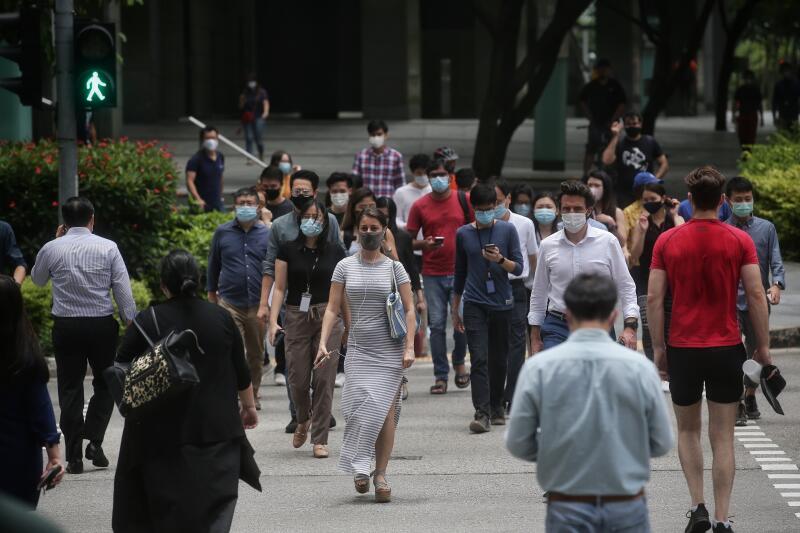Universal basic income is regressive: Tharman
Sign up now: Get ST's newsletters delivered to your inbox

Another argument for UBI is that new forms of automation and AI will displace humans from a much wider range of jobs.
ST PHOTO: KEVIN LIM
A universal basic income (UBI) is regressive and means that large numbers of people have to be taxed more heavily, said Senior Minister Tharman Shanmugaratnam at the Bloomberg New Economy Forum on Monday.
Responding to moderator and Bloomberg Quicktake chief correspondent Jason Kelly's question on whether governments should institute a UBI, Mr Tharman called it a "bad idea" on two counts.
Firstly, it is regressive.
"The idea of giving everyone (the same) quantum of money is very different from giving the poor and the lower-middle-income group the support they need."
He added that while many UBI proponents say it is a way of flattening the system of benefits, he thinks countries need to stack the benefits in favour of the poor and the lower-middle-income group, not give them less.
"Secondly, to give the poor what they need through UBI, you've got to give everyone that same higher amount. In other words, you don't just flatten the curve but you've got to raise the curve. That needs much more taxes.
"And if we do the arithmetic, it can't just be taxes on the rich. You need much more taxes on the middle-income group in order to give everyone the amount of benefits that the poor actually need."
Another argument for UBI is that new forms of automation and artificial intelligence (AI) will displace humans from a much wider range of jobs, and a way must be found to distribute productivity gains from automation and AI to a population that may not be fully employed. "We might get to that situation, but we have no idea whether we will," he said. More importantly, what happens depends on the actions taken now, he added, and the last thing countries should do is to "give up hope" and go for purely redistributive, or passive, strategies.
"We do need redistribution. But what we should be doing now is investing in public goods, investing in public school systems, and I'm quite optimistic about that potential," Mr Tharman said.
He stressed that by investing in things that everyone can see opportunity in, for themselves and their families, people can be brought together because they have a feeling that governments are doing something for everyone.
"Let's talk about how we can do things to develop capabilities, develop hope and aspirations," he said. "If we lose the game in 20 or 30 years' time, we can start talking about UBI, but we first have to get started. We haven't gotten started in many countries."


